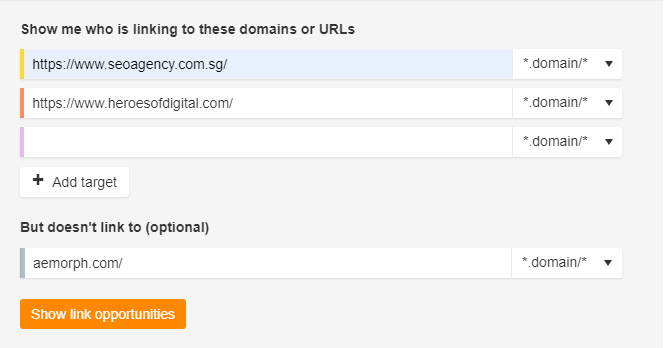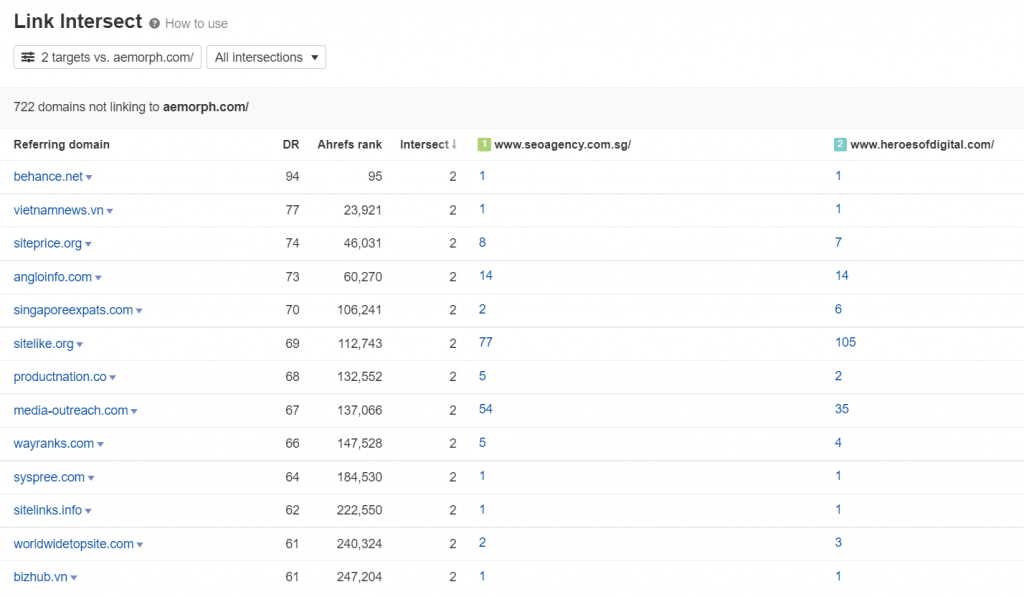Off-page SEO is considered to be one of the most important aspects of any comprehensive SEO strategy. It refers to every activity you can do off your website to your rankings in search engines.
This guide will walk you through all there is to know about off-page SEO. We will discuss the different off-page SEO strategies and off-page SEO tactics that you can use, and we will provide tips and advice for getting the most out of off-page SEO. Let’s get started!
Chapter 1: Off-page SEO Core Basics
What is off-page SEO?
Off-page SEO is a process of optimizing your website for ranking in search engines. It encompasses all of the activities you can do off your website to improve your rankings. This includes things like building links, social media engagement, and local directory listings.
Why is it important?
Off-page SEO is important because it can help you to improve your website’s visibility in search engines. If you have a website that is not ranking well, a good off-page SEO strategy can be a great way to boost it.
Additionally, a good off-page SEO strategy can also help you build brand awareness and generate more leads and sales for your business.
What are the benefits of off-page SEO?
There are many benefits of having good off-page SEO techniques. Some of the most notable benefits include:
- Improved website visibility in search results
- Increased traffic to your website
- Better brand awareness and recognition
- More leads and sales for your business
What is the difference between Off-page SEO and On-page SEO?
Off-page SEO is the activities that you can do off your website to improve your rankings. This includes building links, social media engagement, guest-posting, etc…
On the other hand, on-page SEO refers to all of the optimizations that you can do on your websites, such as optimizing your title tags, meta descriptions, and content.
In general, off-page SEO is more important for small businesses and websites that are just starting. This is because a great off-page SEO tactic can help you to build brand awareness and generate more leads and sales.
However, both on-page and off-page SEO are important for any website that wants to rank well in a search engine.
Chapter 2: Link Building
What is Link Building?
Link building is the process of producing high-quality backlinks to your website. Backlinks are links from other sites to your website. They serve as a vote of confidence from other sites, and they can help improve your visibility in a search engine.
Why is Link Building important?
Building links is important because it can help to improve your website’s visibility in a search engine. Backlinks act as a vote of confidence from other domains, and they can help increase your website’s authority. Additionally, link building can also help you generate more traffic to your website.
How does link building work?
Building link works by increasing the number of high-quality backlinks to your website. This is done by creating great content and promoting it on other sites.
When other domains link to your content, it signals that your website is authoritative and trustworthy to a search engine.
What are the benefits of link building?
Building links can be beneficial for any website that wants to rank well on search engine results pages. Some of the amazing benefits of link building include:
- Improved website visibility in a search engine
- Increased organic search traffic to your website
- Better brand awareness and recognition
Stages of Link Building
Prospecting
Prospecting is the process of finding websites that could potentially link to your website that are relevant to your business and that would make good backlinks.
This can be done by using tools like Google Search Console and BuzzSumo.
Vetting
Vetting determines whether the prospects are the people from whom you wish to obtain a link.
Vetting Criteria
- Content Quality
- Content Relevancy
- Website Authority
- Website Organic Traffic
Outreach
Outreach is the method link builders use to contact prospects to ask for a link.
Once you have found some potential link prospects, the next step is to reach out to them and pitch your content. This can be done by emailing the website owner or by using a tool like Pitchbox.
How do I do Link Building?
Making a checklist profile and checking if you hit it is the best method to know if your off-page SEO plan is working. There are a few options, including:
Competitor Backlink Analysis
The first step in any link-building campaign is to analyze your competitor’s backlinks. This can be done using a tool like Ahrefs.
When you analyze your competitor’s backlinks, you can see what type of links they are building (Make sure it’s natural links and authority links) and where they are getting them from. This information can be used to help you build similar links for your own website.
To do competitor backlink analysis, you may refer to this video.
Content Creation
The next step in link building is to create great content that people will want to link to. This could be an article or blog post, an infographic, or a video.
Once you have created great content, the next step is to promote it on other websites. This can be done by emailing website owners and asking them to link to your content. You can also use tools like Pitchbox to automate this process.
Guest Posting
Guest posting is the act of writing a blog post for another domain in exchange for a link back to your website. This is one of the innovative ways to build natural links because it allows you to get your content in front of a new audience. It also helps to build relationships with other web admins.
You can reach out to websites in your industry and pitch them a guest post through guest post ideas. If they accept your pitch, you can then write the article and include a link back to your website.
Guest posting tools like MyBlogGuest can help you find websites looking for guest bloggers.
Local Listings
One of the ideal ways to build a natural link is to create local listings for your business. This can be accomplished on sites like Google My Business and Yelp.
Local listings help to improve your website’s visibility in search results, and they also provide a link back to your website. This is one of the ideal ways to get high-quality links from authority websites.
To create a local listing, you will need to create an account on the site and then fill out your business information. Once you have fulfilled this process, you will then need to verify your listing.
When you create a local listing, you will be given a link back to your website. This is an amazing way to improve your website’s visibility in a search engine.
Social Bookmarking
Social bookmarking is another great way to build links. This can be done by submitting your website’s link to sites like Digg and Reddit.
When you submit your website’s link to these sites, it will be visible to all of their users. This is a great way to get exposure for your website and to improve your website’s visibility in search engines.
Link Baiting
Link baiting is a link-building tactic that can be used to get other domains to link to your content. This can be accomplished by creating great content that people will want to share.
An example of link baiting would be creating an infographic about a popular topic. Once the infographic is created, you can then submit it to sites like Reddit and Digg.
Link baiting is a great way to get exposure for your website and to improve your website’s visibility in search engines.
Brand Building
Brand building is a technique that can be used to improve your website’s visibility in search engines. This is done by creating great content and promoting it on other domains.
You can also use social media marketing to build your brand and improve brand mentions. This can be done by creating great content and sharing it on sites like Twitter and Facebook.
Building a brand and getting more brand mentions will help you improve your website’s visibility in Google and other search engines and will also help you attract more visitors to your website.
If you improve your brand and brand mentions, others will just automatically link to you.
Link Intersecting
Link intersecting is finding websites that link to your competitors and then asking them to link to you. To find websites that link to your competitors, you can use a tool like Ahrefs.
Let’s say we are working for Linda Mandarin, who is on the 5th spot. Everyone above Linda Mandarin in Google search results will now be considered Page-Level Competitors.
Using Ahrefs’ Link Intersect tool, we can detect domains linked to competitors.

By clicking “show link opportunities”, Ahrefs will show you the domains linking to your competitors but not to you.

After you’ve located these websites, contact them to see if they’d be interested in linking to yours as well.
Resource Page
Resource page link building is finding websites that have lists of resources and then asking to be added to those lists.
To find these types of websites, you can use a tool like Google Search Console.
Once you’ve located these websites, contact them to see if they’d be interested in adding your website to their resource list.
For instance, if you have a website involving SEO, you should only contact websites that provide lists of SEO resources. You may locate these websites by searching for “SEO resources” or “SEO tips” on Google. You may then contact websites in your niche when you’ve located these.
Paid Links
Paid links are links that you pay for. These are generally not as effective as other types of links, but they can still be a good way to build links. To find websites that offer paid links, you can use a tool like Google AdWords.
Once you have found these websites, you can then reach out to them and ask if they are willing to link to your website.
Reciprocal Links
Reciprocal links are links that are exchanged between two websites. These are generally not as effective as other types of links, but they can still be a good way to build links. To find websites that offer reciprocal links, you can use a tool like Google Search Console.
Once you have found these websites, you can then reach out to them and ask if they are willing to link to your website.
Chapter 3: Off-page SEO Strategy Checklist
To have an effective Off-page SEO strategy, it is essential to have checklists to follow. Some of the checklists include:
Evaluate Your Backlink Profile
The first thing you should do is look at your backlink profile. You can use tools like Ahrefs to do this.
Whatever the tool you choose to use, you should have access to the following information:
- The number of links that are redirecting to your website
- The number of domains that link to your website.
- The total number of links on each page
- Anchor Text
If you see that you have many low-quality links, you should consider disavowing them. You can accomplish this by producing a file called “disavow.txt” and then uploading it to Google Search Console.
You see that you have a lot of links with anchor text that are not relevant to your website; you should consider disavowing them as well.
After examining your backlink profile, move on to the following step in this off-page SEO checklist.
Examine The Backlink Profiles Of Your Competitors
To do this, you can use a tool like Ahrefs. Once you have your competitors’ backlink profiles, take a look at their total number of links and the number of domains that link to them.
You should also look at the anchor text that is being used to link to their website. If you see that your competitors have a lot of links with anchor text relevant to their website, you should try to get links with similar anchor text.
If you see that your competitors have many low-quality links, you should disavow them as well. After you’ve examined your competitors’ backlink profiles, move on to the following step in this off-page SEO checklist.
Improve The On-page SEO Of Your Website
Once you have examined your backlink profile and your competitors’ backlink profiles, you have to secure that the domains linking to you will not go to waste. These include checking your 404 errors, internal linking, and other on-page SEO factors.
If you improve the on-page SEO of your website, it will be easier for the links pointing to your website to pass along link juice, and it will also be easier for visitors to find what they are looking for on your website.
Consider your link-building choices
After improving your on-page SEO, you may want to consider your link-building strategy. These include the following:
- Guest Posting
- Local Listings
- Social Bookmarking
- Link Baiting
- Brand Building
- Link Intersecting
- Paid Links
- Reciprocal Links
In most circumstances, your company will employ many link-building strategies. However, your organization and your personal preferences will determine whatever ones you use.
Chapter 4: Content Exposure Sites
Here are some places where you may post your blog content for increased exposure to improve the off-page SEO strategy of your website.
Social bookmarking sites:
Digg, Stumbleupon, Slashdot
Forums sites:
Reddit, Quora, Blokube, and Blog Engage.
Question and answer sites:
You can use sites like Yahoo Answers and Quora.
Image submission sites:
Flickr, Instagram, Tumblr, or Imgur.
Before uploading, ensure that your images are optimized with the relevant URL and title tag.
Infographic submission sites:
Visual.ly, Reddit, Submit Infographics, and Infographics Archive.
Document submission sites:
Issuu, Slideshare, and Scribd.
Chapter 5: FAQs
What is the difference between nofollow links and dofollow links?
Briefly, a nofollow link does not allow search engine bots to follow it, and a dofollow link does allow search engine bots to follow it. Nofollow links are typically used for sponsored content or paid advertisements, while dofollow links are used for organic content.
What is the difference between DR and AR?
DR (Domain Rating) is a metric used by Ahrefs to rate the backlink profiles of websites, and AR (Authority Rating) is a metric used by Moz to rate the overall authority of a website.
What is the best way to track my off-page SEO progress?
There are a few different ways to track your off-page SEO progress. You can use tools SEMrush, Moz, and Ahrefs. All of these have tools that you can use to track your off-page SEO progress. You can also use Google Analytics to track the traffic that is coming to your website from off-page SEO sources. Finally, you can also ask your clients or customers how they found out about your website.
What are some common off-page SEO mistakes?
Some Off-page SEO mistakes are not tracking progress, not monitoring backlink profile, relying too much on one source of traffic, failing to diversify your link sources, building low-quality links, and ignoring on-page SEO factors.
What are broken links?
Broken links are the links that lead to pages that no longer exist. This can happen for various reasons, but it typically occurs when a website is redesigned or updated, and old pages are removed. Broken links can hurt your off-page SEO because they prevent search engine bots from crawling your website properly.
Conclusion
Off-page SEO is a complex and ever-changing landscape, but this guide should give you a good foundation on which to build your off-page SEO strategy. As always, if you have any questions, feel free to reach out to us in the comments section below. And don’t forget to stay tuned for our next post in the series, where we’ll be covering off-page SEO tactics in depth!
Do you have any off-page SEO tips that you would like to share? Let us know in the comments below! And don’t forget to sign up for our newsletter to stay up-to-date on all things SEO!




